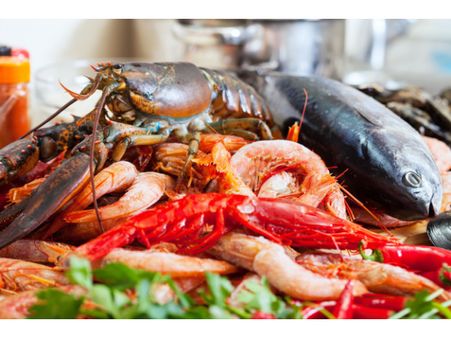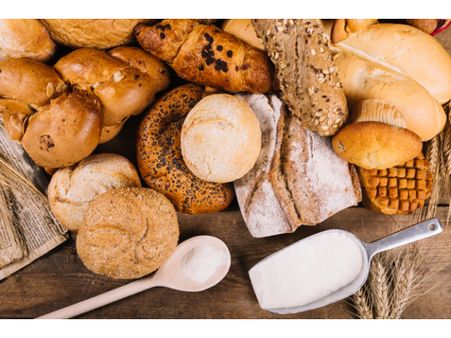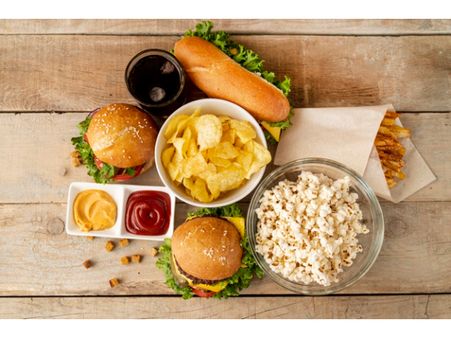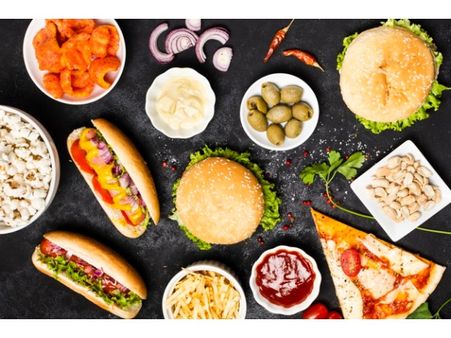Just In
- 28 min ago

- 3 hrs ago

- 3 hrs ago

- 5 hrs ago

Don't Miss
- News
 Soumya Vishwanathan Murder Case: Mother Opposes Bail For Convicts; Hearing On April 22
Soumya Vishwanathan Murder Case: Mother Opposes Bail For Convicts; Hearing On April 22 - Movies
 Thug Life Release Date Update: Kamal Haasan-Mani Ratnam's Epic Drama To Hit Screens In 2025 On This Date?
Thug Life Release Date Update: Kamal Haasan-Mani Ratnam's Epic Drama To Hit Screens In 2025 On This Date? - Education
 UPMSP Class 10 and 12 Results 2024 to be Released Today, Check the Details Here
UPMSP Class 10 and 12 Results 2024 to be Released Today, Check the Details Here - Sports
 Virat Kohli Record Against Kolkata Knight Riders and at Eden Gardens Ahead Of RCB vs KKR IPL 2024 Match 36
Virat Kohli Record Against Kolkata Knight Riders and at Eden Gardens Ahead Of RCB vs KKR IPL 2024 Match 36 - Finance
 Want To Be Debt Free? 5 Simple Ways To Repay Your Loan Faster
Want To Be Debt Free? 5 Simple Ways To Repay Your Loan Faster - Automobiles
 Tesla CEO Elon Musk's Much-Awaited Visit to India Deferred, Leaving Questions Unanswered
Tesla CEO Elon Musk's Much-Awaited Visit to India Deferred, Leaving Questions Unanswered - Technology
 Garena Free Fire Max Redeem Codes for April 20, 2024: Get Access to the Latest In-game Loot
Garena Free Fire Max Redeem Codes for April 20, 2024: Get Access to the Latest In-game Loot - Travel
 Journey From Delhi To Ooty: Top Transport Options And Attractions
Journey From Delhi To Ooty: Top Transport Options And Attractions
6 Foods To Avoid For Gout
Gout is a painful form of arthritis that develops when an excess of uric acid builds up and forms crystals in your joints. The condition causes sudden pain, swelling and inflammation of the joints and mostly affect the big toes. It can also affect the fingers, wrists, knees and heels.
Uric acid, which causes gout or gout attacks is the waste product which is made by the body when it breaks down a substance called purine, which is found in many foods. Gout attacks typically occur at night and last 3-10 days [1] .

One of the things that may help you manage your gout is to reduce the number of purines you eat. People with gout will not be able to efficiently remove excess uric acid from their body, unlike healthy people.
A gout diet aims at helping you achieve a healthy weight and good eating habits. By restricting the consumption of foods that are high in purine, such as organ meats, red meats, seafood, alcohol, a gout diet guides you in consuming the right kind of foods, which will not only help prevent the onset of these attacks but also promote a healthy lifestyle [2] [3] .
In the current article, we will take a look at the types of foods to be avoided while suffering from gout.

1. Red Meat And Organ Meats
All organ meats such as liver, kidneys, sweetbreads and brain should be avoided as they contain high amounts of purine, which can elevate the inflammation levels and trigger gout attacks. Studies point out that these high-purine foods are the primary causes of gout attacks in individuals with gout. The list also includes bacon, turkey, veal, venison, liver, beef kidney etc.

2. Shellfish
One of the other main types of food to be avoided are shellfish such as lobster and shrimp. Apart from these, you should also avoid the consumption of anchovies, sardines, mackerel, scallops, herring, mussels, codfish, trout, and haddock as well. The high-purine content in these is harmful to an individual suffering from gout.

3. Refined Carbohydrates
This includes white bread, white rice, pasta, sugar which can affect uric acid levels in the body, thereby triggering gout attacks. Refined carbohydrates are high in sugar content which, studies point out, is linked to obesity - a known risk factor for gout.

4. Processed Foods
Food items such as chips, snack foods, frozen dinners should be avoided when one is suffering from gout. Studies point out that processed foods are one of the most harmful types of food for individuals suffering from gout. These foods can cause gout flare-ups because it raises uric acid levels in your body.

5. Sugary Beverages
As aforementioned, sugar is extremely harmful to your body when suffering from gout. The sugar content in these drinks are broken down by your body upon consumption and is used in releasing purines - the primary cause of gout attacks. Apart from that, the fructose content in these beverages increases the serum acid levels in one's body. A study had proved that sugary soft drinks are linked to increased risk of gout in men.

6. Alcohol
As stated by studies, alcohol is a source of purines. Drinking wine, beer and other alcoholic drinks have been linked to the risk of an episode of gout to some degree. According to a study, a direct correlation between beer consumption and gout was found, with other kinds of alcohol also affecting the inflammatory condition. Another study also supports the finding by asserting that wine did increase the risk of a gout attack, so drinking any amount of alcohol increases the risk of gout attacks.

On A Final Note…
Stay away from sugary drinks like soda and fruit juice. You also may need to limit or avoid alcohol as well. Talk with your doctor and figure out the best suitable diet for you. Kindly note that, while a healthy diet can help control how much uric acid is in your system, you may still need medicine to prevent future attacks.
- [1] Chiu, T. H., Liu, C. H., Chang, C. C., Lin, M. N., & Lin, C. L. (2019). Vegetarian diet and risk of gout in two separate prospective cohort studies. Clinical Nutrition.
- [2] Singh, J. A., Green, C., Morgan, S., Willig, A. L., Darnell, B., Saag, K. G., ... & McGwin, G. (2019). A Randomized Internet-Based Pilot Feasibility and Planning Study of Cherry Extract and Diet Modification in Gout. JCR: Journal of Clinical Rheumatology.
- [3] Li, M., Ding, X., Rong, X., Fang, T., Qian, S., He, M., ... & Wu, J. (2019). Clinical pathological study of gosling gout induced by high protein diet. Journal of South China Agricultural University, 40(1), 46-52.

-
 nutrition8 Best Foods For Gout Diet
nutrition8 Best Foods For Gout Diet -
 disorders curePseudogout: Causes, Symptoms, Diagnosis And Treatment
disorders curePseudogout: Causes, Symptoms, Diagnosis And Treatment -
 wellnessAstonishing Benefits Of Lily Of The Valley, Interactions & Side Effects
wellnessAstonishing Benefits Of Lily Of The Valley, Interactions & Side Effects -
 wellness10 Essential Oils For Relieving Gout Pain
wellness10 Essential Oils For Relieving Gout Pain -
 disorders cureWhat Is Gout And How It Can Be Treated?
disorders cureWhat Is Gout And How It Can Be Treated? -
 nutrition10 Surprising Good Facts About White Chocolates
nutrition10 Surprising Good Facts About White Chocolates -
 disorders cureAmazing Foods To Reduce Uric Acid In Your Body & Prevent Kidney Stone, Gout
disorders cureAmazing Foods To Reduce Uric Acid In Your Body & Prevent Kidney Stone, Gout -
 wellnessTry This 4-Ingredient Remedy To Eliminate Joint Pain & Gout
wellnessTry This 4-Ingredient Remedy To Eliminate Joint Pain & Gout -
 nutritionTop Alkaline Foods That Can Fight Cancer, Gout, Heart Disease & Diabetes
nutritionTop Alkaline Foods That Can Fight Cancer, Gout, Heart Disease & Diabetes -
 wellnessAluminium Foil For Pain Relief! Try This!!
wellnessAluminium Foil For Pain Relief! Try This!! -
 wellness7 Remedies Using Baking Soda
wellness7 Remedies Using Baking Soda -
 disorders cureRemedies To Reduce Uric Acid
disorders cureRemedies To Reduce Uric Acid


 Click it and Unblock the Notifications
Click it and Unblock the Notifications



